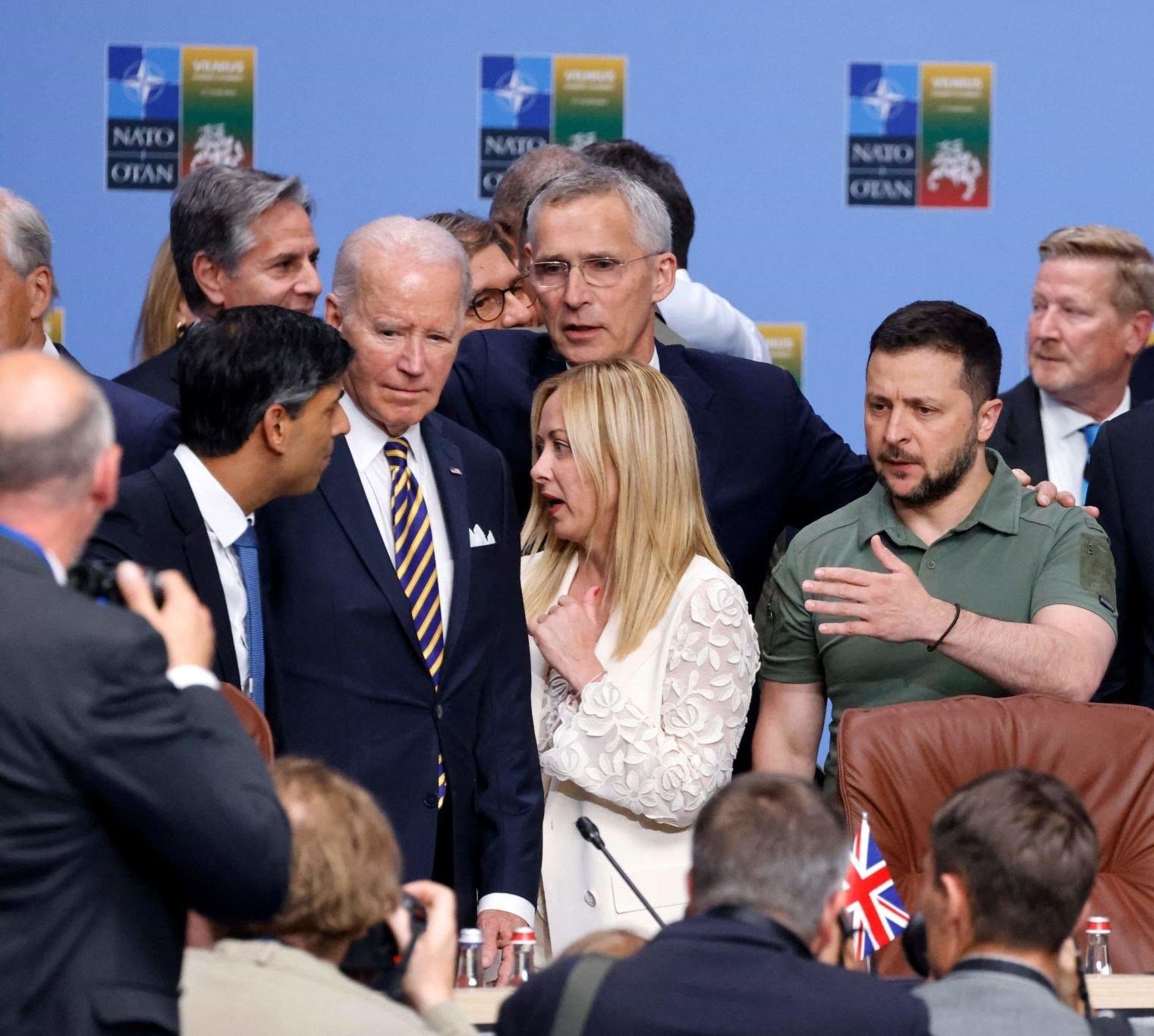US's NATO strategy fails in the face of European division: Analysis
A piece by Responsible Statecraft highlights the failure of US policy in Ukraine and NATO and suggests that Washington switch up its expansive offensive policy to a defensive one.
-

Ukrainian President Volodymyr Zelensky (R), US President Joe Biden (2ndL), NATO Secretary General Jens Stoltenberg (2ndC), Italy's Prime Minister Giorgia Meloni (1stC) arrive for a working session on Ukraine at the NATO summit, in Vilnius on July 12, 2023. (AFP)
The United States' strategy for NATO is failing, a report by Responsible Statecraft asserts.
The magazine, which belongs to the Quincy Institute for Responsible Statecraft think tank, highlighted the failure of the Ukrainian counteroffensive, which is diving into the strategic stockpiles of Western countries, including that of the US.
Responsible Statecraft says this failure is due to Russia's "massive fortification, large numbers of replenished troops, and growing dominance of the skies near the war's front lines."
On the other hand, Ukraine is suffering from large losses in troops and the large-scale use of artillery shells and air defense ammunition, which Western production cannot keep up with. This makes NATO's strategy to negotiate peace based on the success of the counteroffensive "quixotic," according to the magazine.
Read more: Ukraine loses 280 troops in Donetsk direction in one day: Russian MoD
George Beebe, the Director of Grand Strategy at the Quincy Institute, says the US's strategy after the dissolution of the Soviet Union has failed in Europe.
The researcher says the US' dealings in the continent have allowed it to take full control of Western European countries' foreign policy choices, while its actions in Ukraine have cut off essential cheap Russian energy, a key for industrial growth. Instead, the US has pushed Europe to reduce its transactions with China and cut off Russian energy supplies replacing them with much more expensive American gas.
He also underlines the growing tensions between Eastern European members of NATO such as Poland, who feel threatened by the events in Ukraine and are pushing for Kiev's NATO membership, which would invoke large-scale war with Russia, according to the American assessment.
In contrast, Poland and the Baltic states believe that NATO's involvement would force Moscow to surrender. However, the US is unwilling to go into such a risky venture. This comes to the dismay of NATO members who are unsure if the US would keep its security guarantees if they were to be attacked.
Being that Washington has eliminated the possibility of larger NATO involvement in Ukraine, Beebe says the US should adopt a new strategy in Europe. He believes that the US should work on stopping Russia from advancing into Ukrainian territories rather than try to push back Moscow from the Donbas and Crimea.
Moreover, the expert says the US should "couple this defensive support with a diplomatic offensive that incentivizes Moscow to end the fighting." He also suggests that Washington should halt NATO's expansion and return the alliance to its original mission while strengthening Europe's involvement in the organization.
Read more: A Grim Reaper that will outlast the Ukraine war: Cluster munitions

 3 Min Read
3 Min Read










